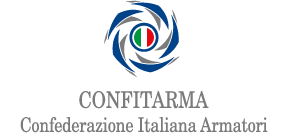Vigilance Essential Despite Reduction to Piracy High Risk Area in the Indian Ocean
The Round Table of international shipping associations plus the OCIMF, representing the global shipping and oil industry have announced that the geographic boundaries of the ‘High Risk Area’ for piracy in the Indian Ocean have been reduced, with new advice issued to merchant ship operators.
The High Risk Area reflects the area where the threat from piracy exists, whilst recognising the ongoing containment of pirate attacks in the Indian Ocean. The industry group of shipping and oil industry organisations (BIMCO, International Chamber of Shipping (ICS), INTERCARGO, INTERTANKO and the Oil Companies International Marine Forum (OCIMF)) responsible for setting the High Risk Area emphasised that a serious threat remains despite the reduction to the area’s geographic boundaries and that correct reporting, vigilance and adherence to the 5th edition of the best management practice (BMP5) remains crucial.
The reduction to the High Risk Area takes full account of recent shipping industry experience, pirate intent and capability and follows extensive consultation with nations, collations and military naval forces, including Combined Maritime Forces, EUNAVFOR and the United Kingdom Maritime Trade Operations (UKMTO), which continue to provide vital advice and protection to shipping.
The regional UKHO Maritime Security Chart, Q6099 will be updated by Notice to Mariners and a new version produced to reflect this changes which take effect from 01 May 2019.
The advice can be downloaded via the industry organisations website: https://www.maritimeglobalsecurity.org/risksissues/piracy/
In summary:
- The area previously classified as “high risk” forms only a part of the area called the Voluntary Reporting Area (VRA). ;
- Ships entering the VRA are encouraged to report to the UKMTO to be monitored during transit and register with the Maritime Security Centre for the Horn of Africa (MSCHOA);
- Pre-transit risk assessments should take into account the latest information from both the VRA and High Risk Area.
The industry associations further emphasised that in view of the continuing threat of pirate attacks, shipping companies must continue to maintain full compliance with BMP5 and be vigilant in their voluntary reporting on piracy incidents, sighting of potential pirates, and any suspicious activity – as this provides crucial intelligence on risk levels in the area.
The new coordinates of the HRA are:
In the Southern Red Sea: Northern Limit: Latitude 15 o 00’N
In the Indian Ocean a line linking:From the territorial waters off the coast of east Africa at Latitude 05 o 00’S to 050 o 00’E
Then to positions:
Lat: 00o 00’N Long: 055 o 00’E
Lat: 10o 00’N Long: 060 o 00’E
Lat: 14o 00’N Long: 060o 00’E
Then a bearing 310o to the territorial waters of the Arabian Peninsula.
The industry associations will continue to monitor developments to the security situation, and will adjust the HRA again if and when the situation warrants it.
ENDS
Notes to editors
Contact details for the industry associations:
| BIMCO
Rasmus Nord Jørgensen, Communications Director |
Tel: +45 21690421
Email: rnj@bimco.org |
| ICS
Debra Munford (Elaborate Communications) |
Tel +44 (0) 1296 682356
Email: dmunford@elabor8.co.uk |
| INTERTANKO
Dr Phillip Belcher, Marine Director |
Tel: +44 (0)20 7977 7033 |
| INTERCARGO
Xianyong (Joe) Zhou, Operations Manager |
Tel: + (0)20 7977 7029
Email: xianyong.zhou@intercargo.org |
| OCIMF
Russell Pegg, Security Adviser, |
Tel: +44 (0) 207 654 1202
Email: russell.pegg@ocimf.org |
About the Round Table of international shipping associations
The Round Table comprises international shipping associations: BIMCO, ICS, INTERTANKO and INTERCARGO. Its mission is to work together to serve, represent and advance the international shipping industry.
Its goals are:
- To act in concert to avoid duplication on issues of consensus, where the combined effort of the Round Table can exceed the sum of the individual efforts.
- Present the industry’s arguments in a clear, co-ordinated, consistent and unambiguous manner.
- Enhance political and public awareness of the essential role of shipping in world trade.
- Encourage a positive and respected response to the industry on the part of society at large.
- Communicate the performance of the industry.
- Provide guidance to the industry on relevant topical issues.
- Develop measures for credible and effective self-regulation within the industry whilst promoting the case for a proper balance between regulation and self-regulation.
- Support the principle of international rather than regional or unilateral regulation.
- Advance quality in shipping, and the universal commitment to maritime safety and environmental responsibility.
- Ensure that shipping provides a challenging and rewarding career for persons of commitment, initiative and enthusiasm.
- Promote the shipping industry as an attractive employer.
About the Oil Companies International Marine Forum (OCIMF)
OCIMF is the foremost authority on the safe and environmentally responsible operation of oil tankers, terminals and offshore support vessels, promoting continuous improvement in standards of design and operation. Its remit now covers tankers, barges, offshore support vessels and terminals and its advice extends to issues like shipping in ice and large-scale piracy.

